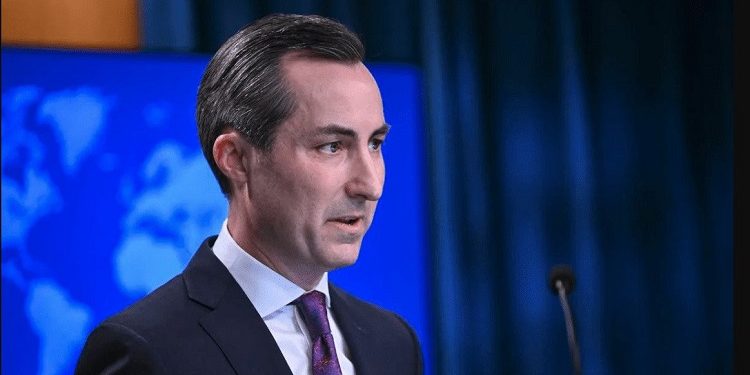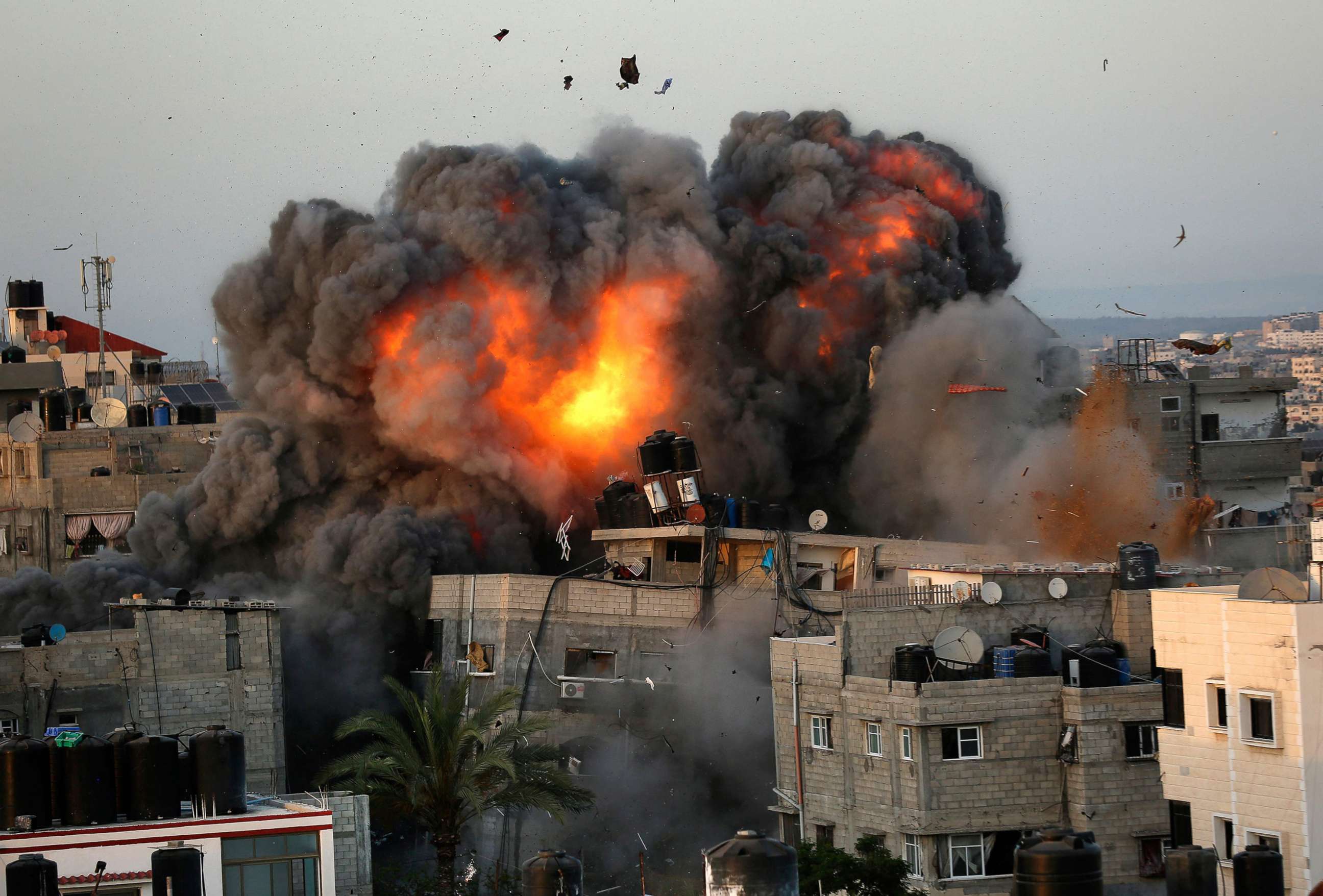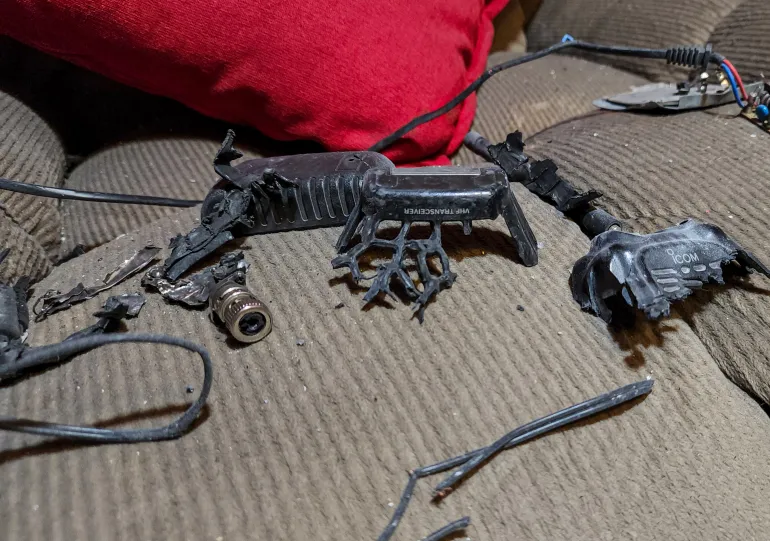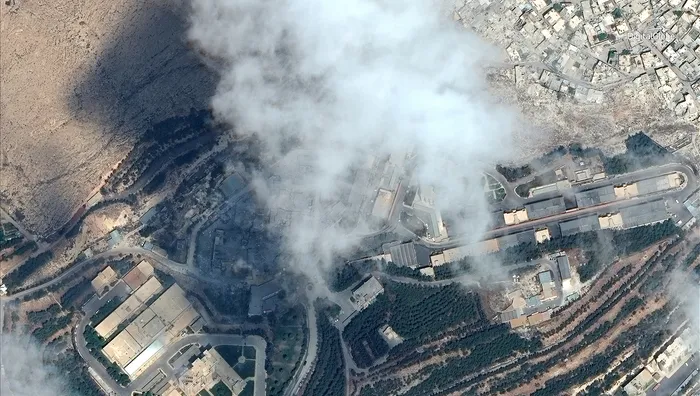The conflict between Israel and Hezbollah has dramatically escalated over the past week, with both sides intensifying military actions. Israel has launched over 1,600 rockets and missiles, primarily targeting Hezbollah’s weapons stockpiles and leadership in Lebanon. In retaliation, Hezbollah has fired more than 700 rockets, missiles, and UAVs into Israel, striking homes deep inside the country and forcing hundreds of thousands of Israelis into bomb shelters.
The Israeli strikes have resulted in significant casualties in Lebanon. According to the Lebanese Health Ministry, at least 558 people have been killed, including 50 children and 94 women, as well as more than 1,800 wounded. These figures highlight the devastating impact on civilians, particularly in southern Lebanon, where Hezbollah’s military infrastructure is often embedded within residential areas. The Lebanese Health Ministry does not differentiate between militants and civilians in its casualty reports, making it difficult to determine how many of the dead are combatants versus non-combatants.
 Credit: IDF - Hezbollah Missile in Residential Attic
Credit: IDF - Hezbollah Missile in Residential Attic
Hezbollah's Human Shield Tactics
Hezbollah’s long-standing tactic of embedding military assets in civilian homes has become a central issue in this conflict. The Israel Defense Forces (IDF) has accused Hezbollah of using human shields, placing rockets, missiles, and other military equipment in civilian areas to cause Israeli strikes to have civilian collateral. One such example, revealed by the IDF above, shows how Hezbollah stored long-range rockets in the attic of a house in Houmin Al Tachta, while a family lived below, unaware or powerless to stop it.
Despite Israeli efforts to issue warnings to civilians to evacuate, Hezbollah operatives have reportedly prevented residents from leaving, exposing them to greater risk. The IDF has stressed that its strikes are carefully planned to minimize civilian casualties, but secondary explosions from hidden weapons caches have increased the death toll, further complicating efforts to protect non-combatants.
Israel is not only battling Hezbollah and Hamas with missile strikes, but also faces a war of international media perception. The more civilian casualties that occur, the more difficult it becomes for Israel to secure international support, including funds and weaponry, to defend itself against these Iranian-backed groups. This dynamic incentivizes Hamas and Hezbollah to continue using civilians as shields, aiming to wear down Israel through a war of attrition.
 Credit: AFP - Hezbollah Military Commander Ibrahim Aqil's Funeral
Credit: AFP - Hezbollah Military Commander Ibrahim Aqil's Funeral
Targeted Strikes on Hezbollah Leadership
A key development in this recent escalation was the IDF's targeted strike on Ibrahim Aqil, a senior Hezbollah commander and the mastermind behind the group's long-standing plan known as “Conquer the Galilee”. This plan aimed to infiltrate northern Israeli communities and carry out mass killings, similar to Hamas's assault on southern Israel on October 7th.
Aqil’s death, along with other senior Hezbollah leaders, is seen as a significant blow to Hezbollah’s military planning. The elimination of Aqil is likely to disrupt Hezbollah's operational capabilities, at least temporarily, though it remains to be seen how effectively the group can reorganize and retaliate.
 Credit: Reuters - Syria's Al-Assad & Russia's Vladimir Putin
Credit: Reuters - Syria's Al-Assad & Russia's Vladimir Putin
Regional Consequences
The conflict between Israel and Hezbollah is part of a larger geopolitical struggle involving Iran, which has long supported Hezbollah with funding, weapons, and training. Iran’s involvement in both the Hezbollah-Israel conflict and the simultaneous Israel-Hamas confrontation in Gaza reflects its broader strategy to challenge Israel’s dominance in the region and increase its influence.
The escalation raises concerns of a broader regional war, particularly as Hezbollah’s actions could provoke responses from neighboring countries. Syria, which shares borders with both Israel and Lebanon, could be drawn further into the conflict, especially given the presence of Iranian-backed militias in the area. Israel has previously conducted airstrikes in Syria to target Hezbollah and Iranian forces, and the current situation may lead to further military operations across multiple fronts.
Moreover, Russia’s involvement in Syria, where it supports the regime of Bashar al-Assad and maintains a complex relationship with Iran, adds another layer of complexity. Russia’s role could influence the conflict’s trajectory, especially if Israeli airstrikes threaten Russian interests in Syria.
 Credit: Georgia Today - Matthew Miller, Spokesman for the U.S. Department of State
Credit: Georgia Today - Matthew Miller, Spokesman for the U.S. Department of State
International Response
The United States, a close ally of Israel, has voiced its support for Israel’s right to defend itself against terrorist threats. However, it has also called for restraint and is advocating for an immediate ceasefire with both Hamas and Hezbollah to prevent further civilian casualties. The United Nations, along with various international humanitarian organizations such as the Red Cross and Human Rights Watch, has raised concerns about the rising civilian toll and the potential for a full-blown humanitarian crisis in Lebanon, where thousands of people have been displaced by the airstrikes.
The International Criminal Court (ICC) has already filed war crimes charges against Israeli Prime Minister Benjamin Netanyahu and Defense Minister Yoav Gallant. The charges against them stem from actions during the conflict in Gaza, with allegations including the starvation of civilians, indiscriminate attacks against civilian populations, and the use of collective punishment. Israel has vehemently denied these charges, claiming that Hamas and Hezbollah's tactics make it impossible to completely mitigate civilian casualties.
Lebanon’s economic collapse has left the country unequipped to deal with the rising number of casualties and the infrastructure damage caused by the Israeli strikes. Hospitals are overwhelmed, and essential resources are running low. International aid is urgently needed to address the humanitarian crisis, yet the ongoing conflict has made delivering assistance more difficult.
At the same time, the international community is closely watching Hezbollah’s tactics. The group’s use of human shields and the placement of military assets in civilian areas have drawn widespread condemnation. However, some global actors have urged Israel to exercise greater caution to avoid further civilian casualties, recognizing the immense difficulty Israel faces in targeting military assets embedded within civilian populations.
 Credit: Bashar Taleb/AFP via Getty Images - Israeli Missile Strikes on Hezbollah
Credit: Bashar Taleb/AFP via Getty Images - Israeli Missile Strikes on Hezbollah

